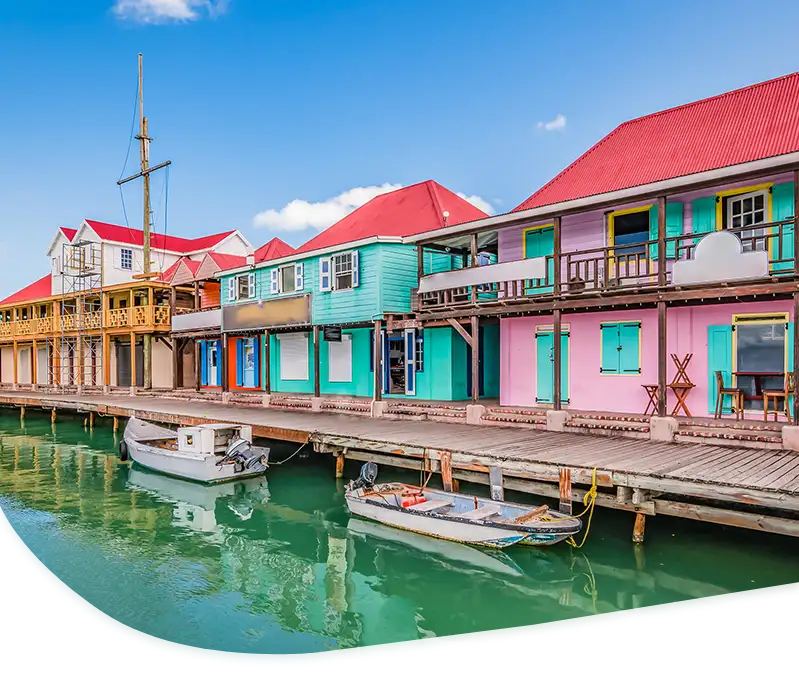Labor Laws in Antigua and Barbuda
- Annual Leave: 12 days
- Maternity Leave: 13 weeks
- Public Holidays: 12
- Workweek: Maximum of 48 hours per week.
- Overtime: Overtime is paid at 150% of the basic wage per hour.

Get everything you need to hire talent in Antigua and Barbuda. Download our comprehensive guide for hiring in this expanding market.
Capital:
Saint John's
Language:
Antiguan and Barbudan Creole
Currency:
Eastern Caribbean dollar
Please enter the following information:
Antigua and Barbuda do not levy income tax on individuals.
Taxable activities for purposes of the Antigua and Barbuda sales tax are sales of goods or supplies of services within Antigua and Barbuda and the import of goods.
The standard rate has been increased to 17%, with a reduced rate of 12.5% for hotels.
Discover the cost of hiring an employee in Antigua and Barbuda.
At the end of each pay period, contributions must be deducted from employees’ wages/salaries. For private-sector workers, the contribution rate is 15% of insurable earnings. Employees pay 6.5%, and employers pay 8.5%.
For public-sector workers, the contribution rate is 14.5%. Employees pay 5.5%, and employers pay 8.5%.
The maximum annual insurable earnings is $78,000 ($6,500 per month; $3,000 per fortnight; or $1,500 per week.)
Here is work visa information for Antigua and Barbuda, download our guide for an extensive breakdown.
If an international worker is recruited, the employer must make an application for a work permit and pay a substantial, non-refundable fee.
The prospective employee must supply identification, health, and criminal record evidence and also provide substantial proof that they followed the correct procedure.
They must show evidence that they advertised and interviewed in the area and that they had good reason not to select any of the local applicants who came forward.
This means if the job is low-skilled and doesn’t require specialist qualifications, the work permit is unlikely to be successful.